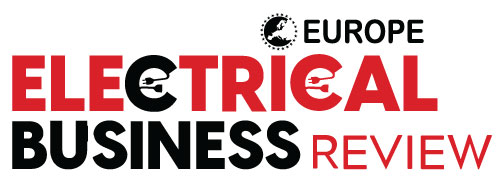Thank you for Subscribing to Electrical Business Review Weekly Brief
Leveraging IoT in Electrical Systems
Electrical Business Review | Thursday, January 30, 2025
By bridging the gap between technology and functionality, IoT is reshaping homes and industries, paving the way for a smarter, more efficient future.
FREMONT, CA: The Internet of Things (IoT) is reshaping industries and setting the foundation for a smarter, interconnected future. One prominent area of IoT’s impact is electrical systems. IoT technologies offer unprecedented innovations, from enhancing energy efficiency in smart homes to transforming industrial electrical grids.
The Internet of Things (IoT) has remodeled how homes and industries function, creating ecosystems prioritizing energy efficiency, convenience, and operational excellence.
Stay ahead of the industry with exclusive feature stories on the top companies, expert insights and the latest news delivered straight to your inbox. Subscribe today.
IoT in Smart Homes
IoT has transformed homes into intelligent ecosystems that promote energy efficiency, security, and convenience. IoT-based smart meters enable real-time energy monitoring, giving homeowners actionable insights into peak energy consumption. Users can reduce electricity costs by automating devices to operate during off-peak hours. Additionally, mobile apps allow remote control of appliances, ensuring minimal energy waste.
Smart grids enhance energy efficiency by leveraging IoT sensors to predict power fluctuations, self-correct outages or load imbalances, and seamlessly integrate renewable energy sources like solar panels. Connected appliances such as smart thermostats, lighting systems, and refrigerators utilize machine learning to adapt to user behaviors, offering automated energy conservation and customized comfort tailored to daily routines.
IoT in Industrial Electrical Systems
IoT has redefined electrical systems in industrial settings by optimizing operations and driving the transition to smarter industries. Predictive maintenance, powered by IoT sensors, detects wear and tear in machinery and alerts operators to maintenance needs before breakdowns occur. This proactive approach minimizes downtime, reduces costs, and boosts productivity.
IoT-based energy management systems analyze industrial energy consumption, identifying inefficiencies and enabling automatic adjustments to machinery based on real-time energy requirements. Additionally, industrial automation benefits from IoT as devices streamline production line processes, ensuring consistent, high-quality outputs through seamless communication between modules.
IoT also supports asset tracking, enabling industries to monitor the location and status of electrical equipment. This ensures optimal resource utilization, prevents losses, and eliminates inefficiencies caused by misplaced or underutilized machinery.
Future trends in IoT and electrical systems highlight the transformative potential of advanced technologies in driving innovation and efficiency. Integrating artificial intelligence (AI) into IoT systems is set to enhance their capabilities, enabling predictive analytics and autonomous decision-making for smarter operations. Meanwhile, the widespread deployment of 5G connectivity will provide faster and more reliable communication, accelerating IoT adoption across industries. Additionally, IoT will play a pivotal role in advancing sustainable energy solutions optimizing renewable energy utilization and storage to support global sustainability goals.
IoT is a revolutionary force transforming electricity consumption, management, and distribution. From energy-efficient smart homes to cost-effective and optimized industries, leveraging IoT can catalyze a sustainable and efficient future in electrical systems. Embracing IoT’s potential while addressing its challenges will enable a seamless transition to smarter ecosystems.
More in News




